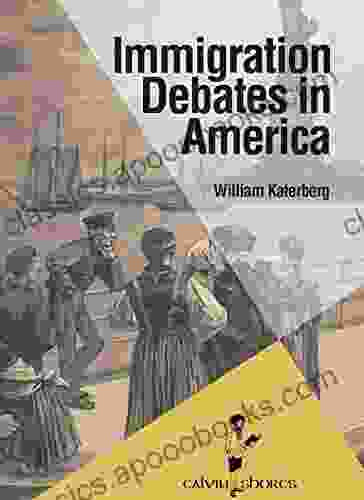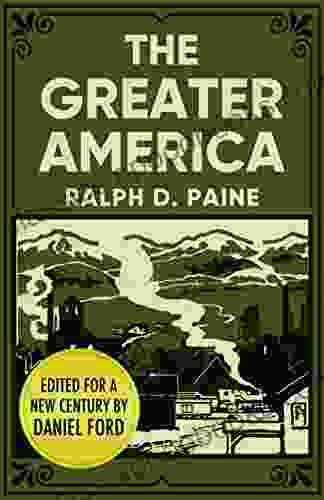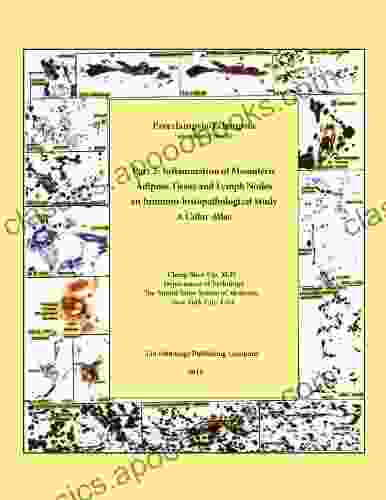Immigration has been an integral part of the American story since the nation's inception. A melting pot of cultures, ideas, and people, America has welcomed individuals from all corners of the globe, each bringing their unique perspectives and contributions. However, immigration has also been a source of ongoing debate, with impassioned arguments for and against its impact on society. In this comprehensive guide, we delve into the complexities of immigration in America, exploring its history, policies, and the multifaceted perspectives that shape this critical issue.
4 out of 5
| Language | : | English |
| File size | : | 16956 KB |
| Text-to-Speech | : | Enabled |
| Screen Reader | : | Supported |
| Enhanced typesetting | : | Enabled |
| Word Wise | : | Enabled |
| Print length | : | 140 pages |
| X-Ray for textbooks | : | Enabled |
Historical Roots of Immigration in America
The roots of immigration in America stretch back centuries. From the arrival of European settlers in the 17th century to the waves of immigrants fleeing famine and persecution in the 19th and 20th centuries, America has served as a beacon of hope for those seeking a better life. The reasons for immigration have been as varied as the individuals who have come to these shores: escaping war, seeking economic opportunity, reuniting with family, or fleeing religious persecution.

Immigration Policy: A Complex Landscape
Immigration policy in America has evolved significantly over time, reflecting changing societal attitudes and economic conditions. The first major immigration law, the Immigration Act of 1882, restricted the entry of Chinese laborers. Subsequent laws, such as the Immigration Quota Acts of the 1920s, imposed national origin quotas, favoring immigrants from Northern and Western Europe. The Immigration and Nationality Act of 1952 established a global quota system and introduced the concept of preference categories, prioritizing skilled workers and family reunification.
In recent decades, immigration reform has been a contentious political issue. The Immigration Reform and Control Act of 1986 granted amnesty to undocumented immigrants who met certain requirements and established employer sanctions for hiring undocumented workers. However, subsequent attempts at comprehensive immigration reform have stalled, leaving the issue unresolved.
Social and Economic Impacts of Immigration
Immigration has a profound impact on American society. Immigrants contribute to the economy through their labor, innovation, and entrepreneurship. They bring diverse perspectives and cultural traditions, enriching the nation's tapestry. However, immigration also raises concerns about assimilation, social cohesion, and the strain on public resources.
Research suggests that immigration has a positive overall impact on the economy, stimulating growth and creating jobs. Immigrants often fill labor shortages in sectors such as healthcare, construction, and agriculture. They also create new businesses and contribute to innovation. However, there is also evidence that immigration can lead to wage suppression in some low-skilled occupations.
Perspectives on Immigration
The issue of immigration evokes strong feelings and diverse perspectives. Supporters of immigration argue that it is essential for the nation's economic prosperity and cultural vitality. They emphasize the contributions of immigrants to society and the importance of welcoming those seeking a better life.
Opponents of immigration, on the other hand, express concerns about illegal immigration, national security, and the potential strain on public resources. They argue for stricter bFree Download controls and reduced levels of immigration.
The debate over immigration is often polarized, with strong arguments on both sides. It is crucial to engage in respectful dialogue and consider the complexities of the issue to find balanced and humane solutions.
Immigration in America is a complex and ever-evolving issue with profound implications for society. 'Immigration Debates in America' by Jaime Lluch provides an invaluable resource for understanding the historical, social, and political dimensions of this critical topic. By delving into the intricacies of immigration policy, examining its multifaceted impacts, and exploring diverse perspectives, Lluch offers readers a comprehensive guide to this ongoing national conversation.
























































































